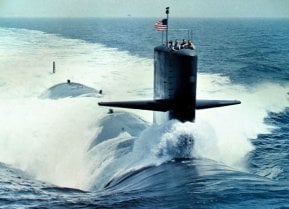Is the Russia-North Korea Alliance Sustainable?
Kim Jong-un seems to be using the Russian alliance as leverage to draw China into a broader anti-U.S. coalition on the Korean Peninsula.
Kim Jong-un has declared that the newly signed “Treaty on Comprehensive Strategic Partnership” between Russia and North Korea, finalized on June 19, elevates their relationship to "a new, higher level of alliance."
The treaty, particularly in Article 4, stipulates that “In case any one of the two sides is put in a state of war by an armed invasion from an individual state or several states, the other side shall provide military and other assistance with all means in its possession without delay…” This provision represents a significant threat with profound implications for Russian war strategy and the regional order in both Europe and East Asia. However, there are essential factors to consider regarding the long-term impact of this alliance.
Will It Endure Beyond the Ukraine War?
Historically, relations between Russia and North Korea have fluctuated considerably depending on the international landscape, as seen after the collapse of the Soviet Union. The new treaty supersedes the 2000 “Treaty on Friendship, Good-Neighborliness, and Cooperation,” which did not include a clause for automatic military intervention. Just as the 2000 treaty reflected the post-Cold War relationship between Russia and North Korea, the current treaty signals a new dynamic wrought by the ongoing conflict in Ukraine.
Relations between Russia and North Korea (DPRK) have undergone significant changes over the past three decades. Since the early 1990s, Russia has been relatively indifferent to issues on the Korean Peninsula. On North Korea’s nuclear program, Russia has often acted more as a veto-wielding power than as an active mediator. While the Ukraine war has increased North Korea’s importance to Russia, it remains unclear whether this closeness will last after the war. In this sense, North Korea appears to be using the treaty to formalize its relationship with Russia and minimize uncertainties about its commitment.
For this new security alliance to persist after the Ukraine war, a higher degree of institutionalization would be necessary. However, there is no existing framework for the Russia-North Korea alliance comparable to other established security agreements such as NATO or U.S. treaty alliances with South Korea and Japan.
The new treaty does take steps toward institutionalizing the bilateral security relationship. Notably, Articles 9 through 21 cover cooperation across various sectors, including the economy, society, technology, and law, reflecting efforts to ensure the treaty’s practicality and sustainability.
On the other hand, the future of Russia-DPRK relations may not be as promising as it currently appears, given the evolving dynamics between China and North Korea. The recent improvement in China-DPRK relations was highlighted by Kim Jong-un’s five summits with Xi Jinping in 2018 and 2019, following Kim’s meetings with then-president Donald Trump.
Before 2018, Xi had not met with Kim, and China-DPRK relations had been strained after North Korea’s third nuclear test in 2013, especially due to China’s decision not to veto United Nations sanctions against Pyongyang. Recent reports of tensions between China and North Korea display the instability of Pyongyang’s diplomacy, raising the question of whether this new treaty with Russia would have emerged without the Ukraine war.
Additionally, the treaty’s long-term effectiveness remains uncertain, especially considering that President Putin, now seventy-two years old, cannot stay in power indefinitely. Without the context of the Ukraine war, the structural basis of Russia-DPRK relations appears fragile.
Kim Jong-un seems to be using the Russian alliance as leverage to draw China into a broader anti-U.S. coalition on the Korean Peninsula. Kim has repeatedly emphasized the creation of a new Cold War order and a multipolar system, aiming to establish a security bloc of Russia, China, and North Korea to counter U.S.-Japan-South Korean cooperation.
Article 6 of the new Russia-DPRK treaty, which calls for a multipolar world order, supports this vision. It appears that Kim views the treaty as part of a long-term strategy to involve China in reshaping international relations around the Korean Peninsula. While the military assistance provision in Article 4 is critical, it is also essential to consider the wider shifts in the global order and the structural challenges within the Russia-DPRK relationship when assessing the treaty’s full implications.
About the Author:
Jihwan Hwang is a professor of international relations at the University of Seoul, Korea. He is the author of North Korea, Nuclear Risk-Taking and the United States: Kim Il Sung, Kim Jong Il and Kim Jong Un (Lanham, MD: Lexington Books, 2024). He is a graduate of Seoul National University and received his Ph.D. in Political Science from The University of Colorado, Boulder.
Image: DPRK State Media.


